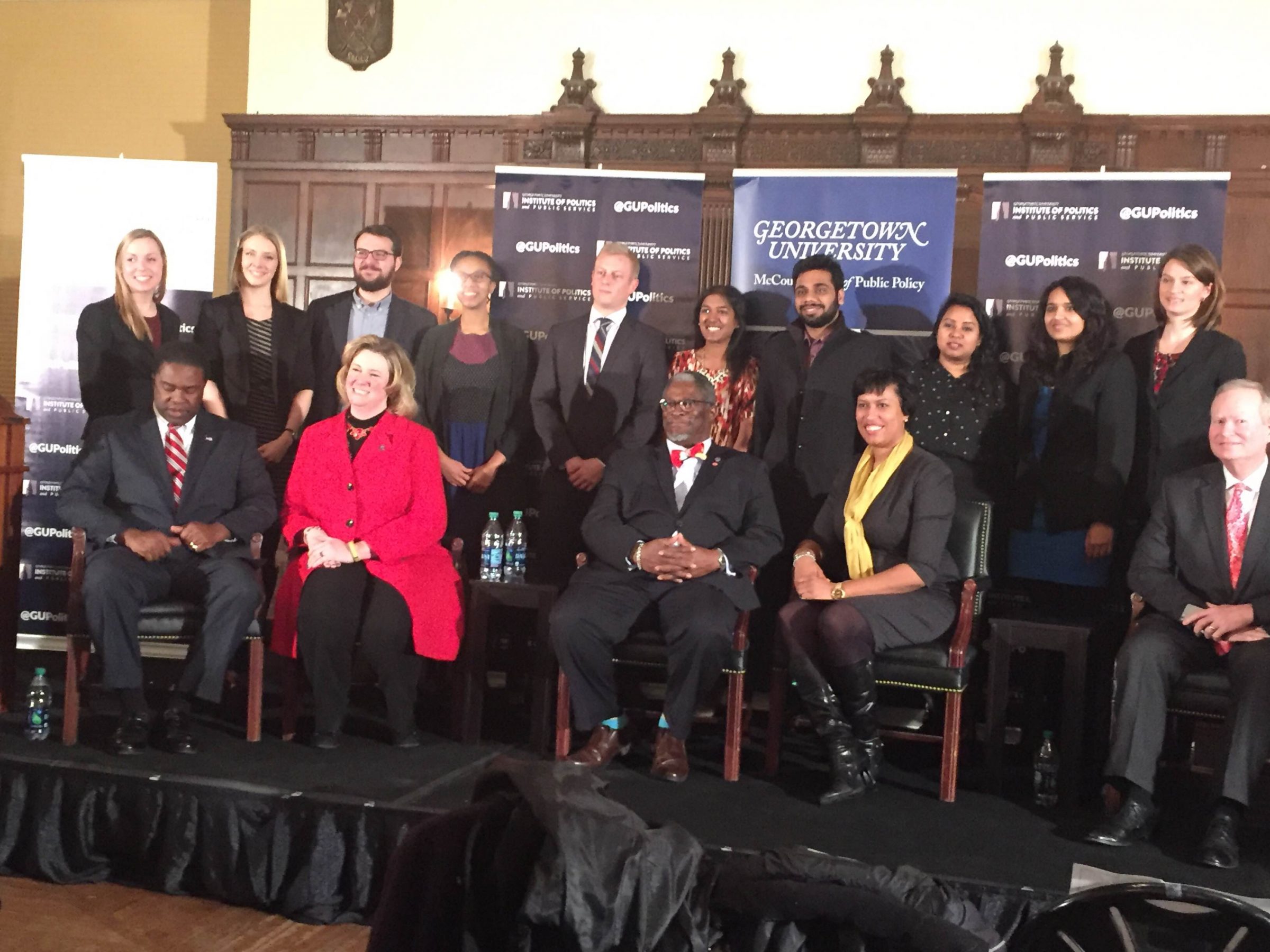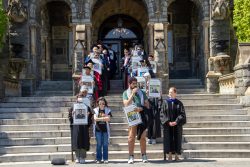On Jan. 20, the Georgetown Institute of Politics and Public Service hosted “Building Cities of Opportunity for All: Policy Solutions for Equitable Economic Development,” a discussion between four mayors from across the country on urban economic policy.
The event was held in Copley Formal Lounge and sponsored by the McCourt School of Public Policy, Georgetown Institute of Politics and Public Service (GU Politics), Georgetown Public Policy Review, McCourt Policy Innovation Lab, and the Baker Center for Leadership and Governance.
Former Jacksonville, Fla. Mayor & Spring GU Politics Fellow Alvin Brown and Georgetown Public Policy Review Editor-in-Chief Erin Mullally moderated the conversation. The panel included Washington, D.C. Mayor Muriel Bowser, Oklahoma City, Okla.. Mayor Mick Cornett, Kansas City, Mo. Mayor Sly James and Dayton, Ohio Mayor Nan Whaley.
In his opening remarks, Executive Director of GU Politics Mo Elleithee said that McCourt School students initiated the event. They were seeking to take advantage of the 84th Winter Meeting of the U.S. Conference of Mayors in D.C. to bring mayors to Georgetown for a conversation about economic policy and politics in cities. Executive Director of the U.S. Conference of Mayors Tom Cochran and Georgetown Public Policy Student Association President Jessica Clarke also gave opening remarks.
In her welcome, Clarke highlighted the failures of federal and state government to address the recurring issue of rising income inequality. “The gridlock in Washington has caused us to rely more and more on mayors and cities to drive growth and innovation and to restore economic opportunity for all,” Clarke said.
Panelists emphasized the unique power of city government to accomplish concrete change, and expressed frustration with the politics of state and federal level legislators. “[State legislators] really want to preempt us from doing anything that helps our citizens because they have a political agenda that they’re pushing, and it doesn’t include helping the poor and eliminating racism and fully funding education,” said James. “Our legislature was so lazy that at one point they took legislation from Illinois and adopted it in Missouri and forgot to change the name.”
Each mayor discussed the particular economic realities and strategies of their own cities. According to Mayor Bowser, Washington’s economic revival is creating issues of affordable housing, homelessness and unequal job opportunities. “There’s a huge anxiety about who will benefit from the transformation of Washington,” said Bowser, “and that the people who stuck around for the hard times will be able to enjoy the good times.” Mayor Whaley and Mayor Cornett face different challenges in governing Midwestern cities. “We don’t have an affordable housing problem. We have a job problem,” Whaley said.
The panelists praised the opportunity for direct impact and contact with constituents that local government provided them. “This is hard work, but it is the most meaningful and makes the most difference in people’s lives,” Whaley said. For Bowser, the combination of local and executive government allows for change and accountability. “You get to make decisions and you’re accountable for all the decisions you make,” Bowser said.
“No branch of government touches people more quickly or intimately than city government,” said Cornett. “We will never wake up saying, ‘we just don’t have the power to change things.’”
Editor’s Note: This post has been updated to clarify that Brown is the former mayor of Jacksonville.





